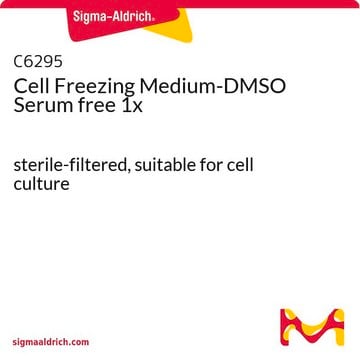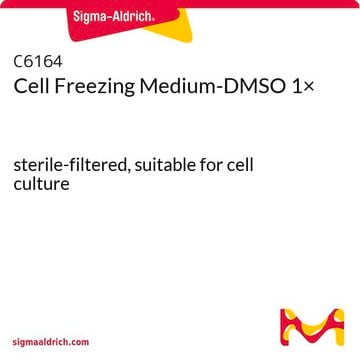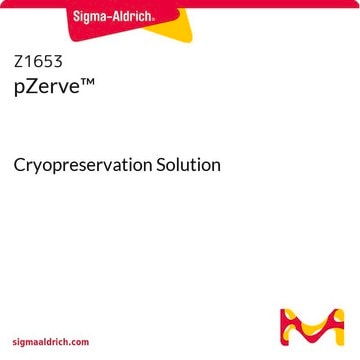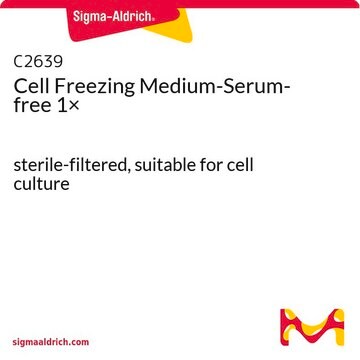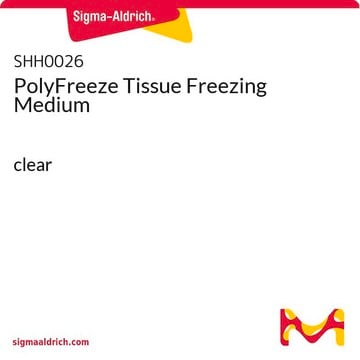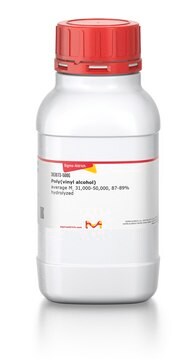C3124
CryoStor® cell cryopreservation media
CS2
Synonym(s):
Cell Cryopreservation Solution, Cryopreservation Media
About This Item
Recommended Products
Quality Level
sterility
sterile-filtered
form
liquid
technique(s)
cell culture | mammalian: suitable
cryopreservation: suitable
shipped in
ambient
storage temp.
2-8°C
Looking for similar products? Visit Product Comparison Guide
General description
CryoStor CS2, CS5, and CS10 are a series of cell specific, optimized preservation media, uniquely formulated to address the molecular biological aspects of cells during the cryopreservation process; thereby, directly reducing the level of Cryopreservation-Induced Delayed-Onset Cell Death and improving post-thaw cell viability and function.
These media are recommended for the preservation of stem cells, hepatocytes, tissue samples, and other extremely sensitive cell types.
Application
Cryostor® Cryopreservation Video Protocol
Other Notes
Legal Information
comparable product
Storage Class Code
10 - Combustible liquids
WGK
WGK 2
Flash Point(F)
Not applicable
Flash Point(C)
Not applicable
Certificates of Analysis (COA)
Search for Certificates of Analysis (COA) by entering the products Lot/Batch Number. Lot and Batch Numbers can be found on a product’s label following the words ‘Lot’ or ‘Batch’.
Already Own This Product?
Find documentation for the products that you have recently purchased in the Document Library.
Customers Also Viewed
Protocols
Cryopreservation affects post-thaw recovery, viability, and functionality. Stress during freezing and suboptimal media lead to cell death.
Cryopreservation affects post-thaw recovery, viability, and functionality. Stress during freezing and suboptimal media lead to cell death.
Cryopreservation affects post-thaw recovery, viability, and functionality. Stress during freezing and suboptimal media lead to cell death.
Cryopreservation affects post-thaw recovery, viability, and functionality. Stress during freezing and suboptimal media lead to cell death.
Our team of scientists has experience in all areas of research including Life Science, Material Science, Chemical Synthesis, Chromatography, Analytical and many others.
Contact Technical Service


